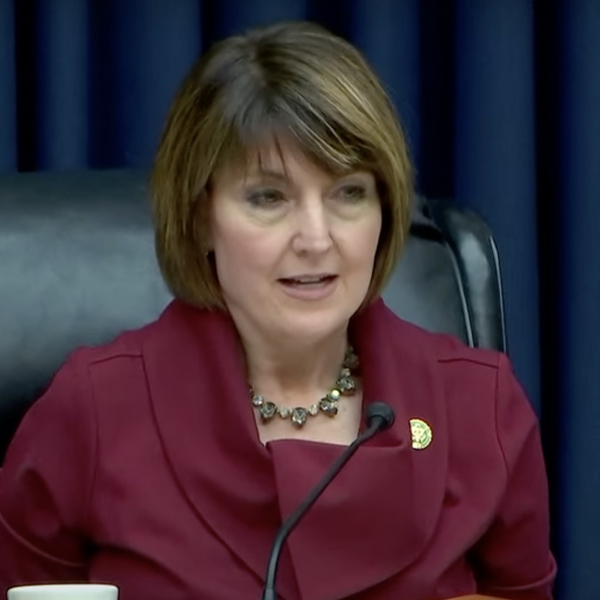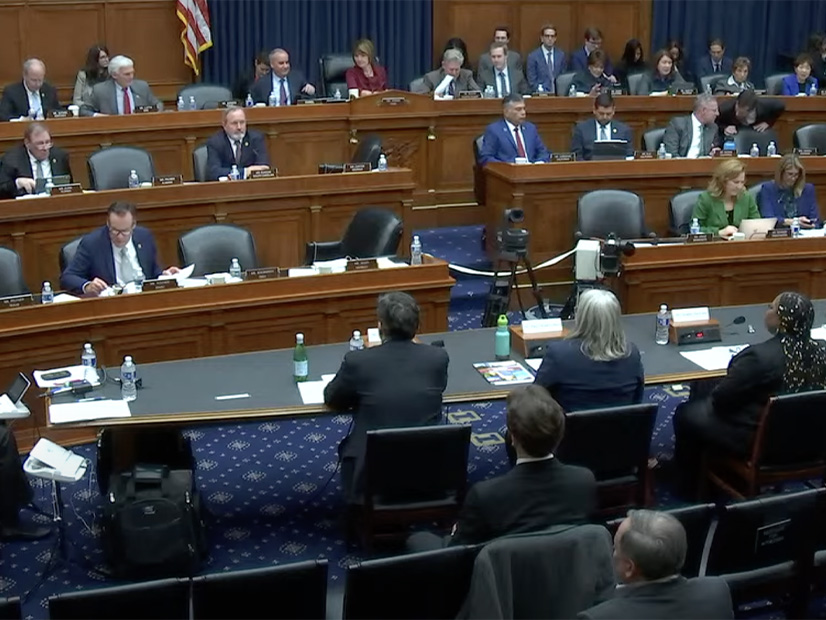The partisan divide was clearly visible at the House Energy & Commerce Committee’s first hearing of the new Congress Tuesday, but witnesses on both sides suggested they might find common ground on permitting “reform.”
 Chair Cathy McMorris Rodgers | House Energy & Commerce Committee
Chair Cathy McMorris Rodgers | House Energy & Commerce Committee
“Energy is foundational to every aspect of our lives, whether it’s making energy more affordable and reliable, securing our supply chains, beating China, protecting the environment, addressing climate change, or putting energy security back at the center of policymaking,” new Committee Chair Cathy McMorris Rodgers (R-Wash.) said at the start of the hearing. “These should be bipartisan goals.”
So far, Republicans have proposed a couple of energy bills in the House that deal with the strategic petroleum reserve, and while those won some support among Democrats, ranking member Frank Pallone (D-N.J.) was not among them. One of the bills would limit the president’s ability to draw down the reserve just to lower prices, requiring that such a move be paired with additional leases for drilling on public land.
Pallone argued the oil companies were interested in keeping the price of their product “artificially high” and said that the committee should move forward on new sources of energy as it did last Congress.
“Let’s keep in mind that encouraging renewables — as we did with the Inflation Reduction Act, as we did with the Bipartisan Infrastructure Law — this is the way to go in the future,” Pallone said.
Maximizing those two laws’ impact will require an expansion of the transmission grid, both by building new lines and upgrading existing ones so that they can transport more power, said Ana Unruh Cohen, who was the Democrats’ staff director for the House Select Committee on the Climate Crisis until Republicans ended the committee when they took over the chamber.
“I think there does need to be more focus on grid enhancement,” said Cohen, the Democrats’ only witness. “Actually, Sen. [Joe] Manchin’s [permitting] proposal had some language on the grid that I think Energy and Commerce staff also liked to help deploy more things, deal with cost allocation.”
While Manchin’s (D-W. Va.) bill failed late last year, Congress did provide agencies up to $1 billion to improve their permitting processes and help get needed projects out the door, Cohen said. That initiative needs to be implemented quickly, she added.
Paul Dabbar, a former undersecretary of energy in the Trump Administration, also called for permitting reform and singled out FERC and its two biggest governing statutes — the Federal Power Act and the Natural Gas Act — for changes.
“FERC needs significant legislative reform to make them do their statutory obligation to ensure there is enough energy supply of all types,” Dabbar said in his written testimony. “They need to be required to approve transmission projects for all types of energy. And they need to radically overhaul ISO rules to encourage baseload power that is being shut down faster than new intermittent plants are being built.”
Neither the FPA nor the NGA are “definitive enough” to make FERC meet its statutory obligation to deliver energy of any type, Dabbar said. He suggested adding more time limits for FERC approval of infrastructure projects.
Dabbar said permitting relief is urgently needed because inflation is interfering project developers’ ability to predict their costs. Project approvals can take so long that by the time they win approval, the initial estimates the regulators relied on are too low and the infrastructure becomes uneconomic.
“We’re seeing that in, for example, Massachusetts, actually, with offshore wind right now,” Dabbar said. “They propose a contract, approvals have taken so long, and then the inflation topic is on top of it, all of a sudden the offshore wind projects, they withdraw them because they don’t make economic sense anymore.”


